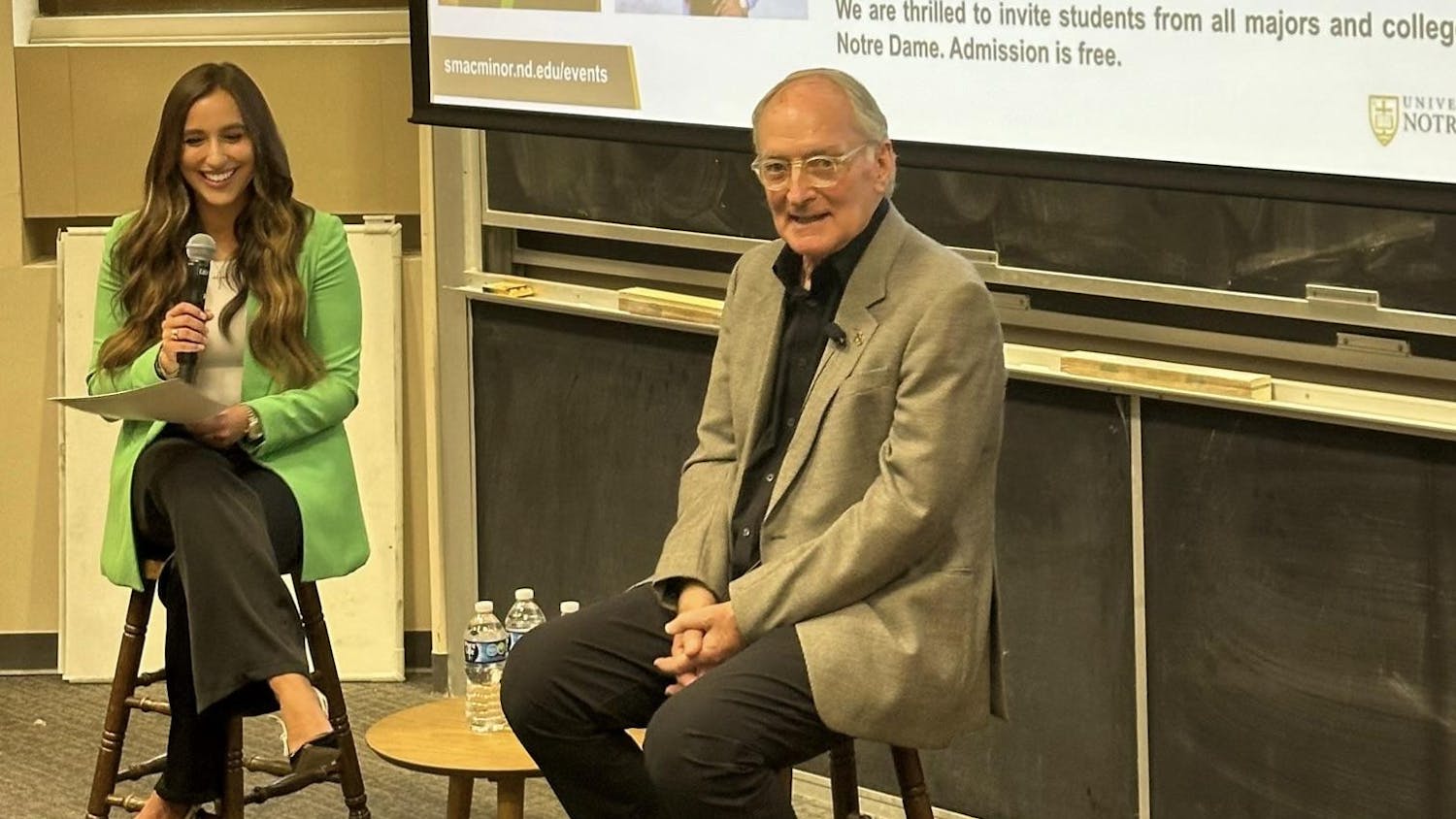In the United States, we celebrate the end of October by dressing in costumes, carving pumpkins and asking strangers for candy. In Mexico, the end of October calls for a different form of celebration. Instead of Halloween, Mexicans observe Día de los Muertos, meaning "Day of the Dead."
The festival's origins trace back to the Aztec goddess of the underworld, Mictecacihuatl, and are linked to All Saints' Day, celebrated on Nov. 1, and All Souls' Day, celebrated on Nov. 2. People make ofrendas, or altars, in memory of lost loved ones to welcome them as they return to earth. While Mexicans acknowledge that their dead do not literally come back on this day, the tradition still stands as an important feature of the day's celebration. The ofrendas typically feature skulls, marigolds, salt, water, bread and favorite foods of the honored person to replenish them on their journey.

Our group of 17 Notre Dame students joined a contest to construct an ofrenda, facing twenty other groups of students from the Universidad Popular Autonoma del Estado del Puebla (UPAEP), our Mexican university.
We chose to honor Father Sorin with our ofrenda. We bought blue and gold decorations, printed pictures of campus and arranged candles across all three levels to represent our beloved Grotto. We arranged a mirror over his portrait, as people believe spirits who return cannot be seen in any form but a reflection. Our group of seven girls each took on the "Catrina" role, wearing long dresses and hats with feathers and flowers and painting our faces to look like skeletons.
As the judges came to our station Thursday, I described Father Sorin, junior Caitlin McKenzie read a "Calavera" and our group sang the "Alma Mater." The "Calavera" is a poem written in a mocking tone, often aimed at a personified form of death. We spent the evening describing Notre Dame, smiling at the disbelievers (the university president among them) who could not imagine that a group of Americans had made our own ofrenda and taking pictures with children in our Catrina costumes.
At last, the results arrived. When we heard "University of Notre Dame" and "third place" in the same sentence, cheers erupted. We not only nearly won, but we had truly experienced this holiday as Mexicans.












